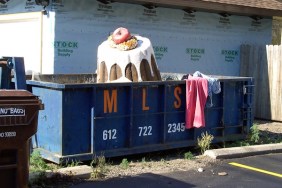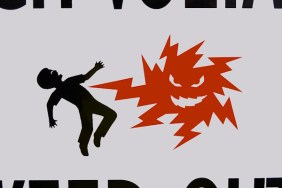Faceted like an irregular crystal, this building in Bilbao, Spain wasn’t simply born of some stroke of artistic inspiration. The amorphous towering facade came about because the city’s restrictive zoning rules required a setback from the curb as well as other concessions. Coll-Barreu Architects took those restrictions and ran with them, producing an unexpected structure that not only serves as a focal point on the street, but is energy-efficient as well.
The striking glass skin is actually disguising a rather pedestrian health department building, but while some architecture enthusiasts may bemoan the lost opportunity for an interesting modern interior, the ‘double facade’ lets in lots of natural light and allows for natural temperature regulation, decreasing energy needs. The inner structure shines through at night like a skeleton.
“The double façade solves not only urban requirements but also those concerning energetic, fire-resistant and acoustic insulation from outside,” explain the architects. “This climatic improvement enables the elimination of the conventional air-conditioning installation as well as the false ceiling. Thus, the sound produced by the building is reduced, air recirculation in workplaces disappears, with a significant increase of health conditions. The volume occupied per floor is also reduced.”
The space between the building itself and the skin acts as a massive two-story atrium that opens up to a rooftop deck. Because of all the angles on the facade, the view from inside is never quite the same, reflecting various parts of the city scene outside depending on viewpoint, season and the time of day.







